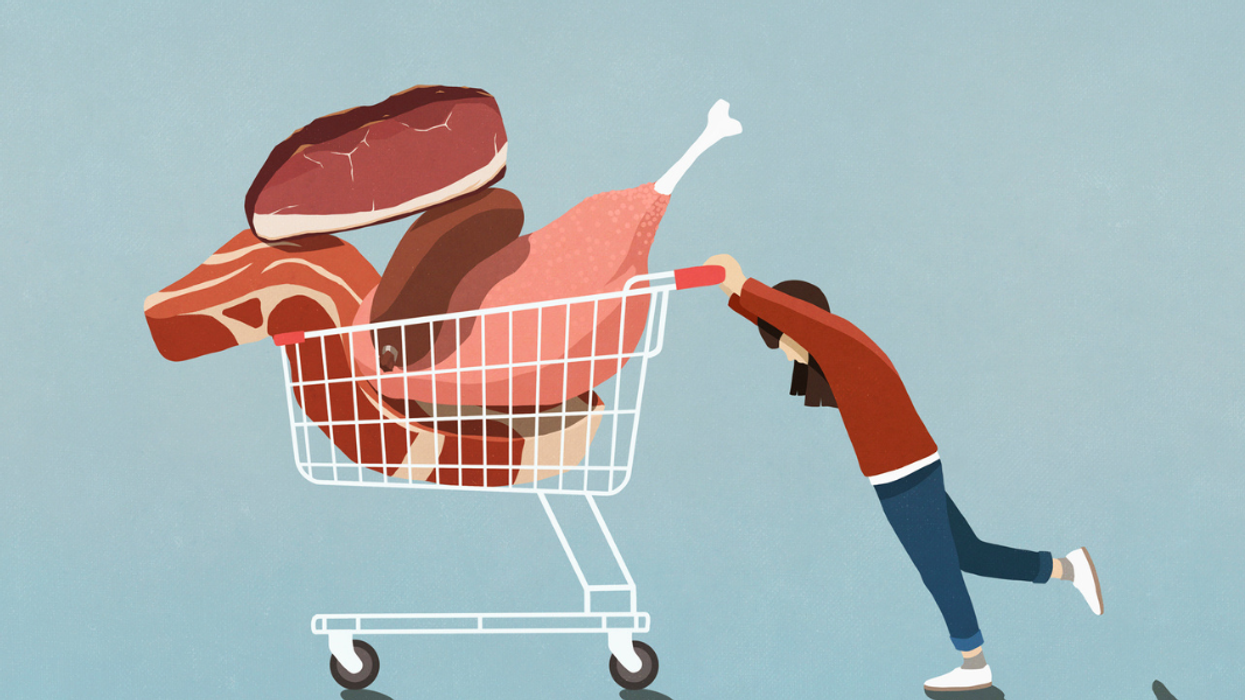Mario H. Lopez is president of the Hispanic Leadership Fund, a public policy advocacy organization that promotes liberty, opportunity and prosperity for all Americans.
Among Congress’ 2023 action items is the massive Farm Bill, legislation that is reauthorized every five years. The bill includes federal assistance for low-income families like the Supplemental Nutrition Assistance Program (SNAP), the principal method by which the U.S. government helps low-income families buy food.
As is necessary in a sweeping program that covers 41 million Americans, there are important rules about what is covered and what is not. And while some restrictions are necessary and uncontroversial—for example SNAP benefits cannot be used to purchase beer, wine, liquor, cigarettes, or tobacco—other rules create unnecessary and illogical barriers for the very people the program is meant to help.
One such barrier with SNAP benefits is the restriction on purchasing hot foods.
The nearly 50 year-old rule prohibits SNAP participants from purchasing foods like rotisserie chicken, hot sandwiches, oatmeal, or soup. When the restriction was put in place decades ago, Americans mostly prepared their meals at home from scratch and hot foods were not as prevalent or accessible. But today, the flexibility of being able to purchase hot meals at grocery and convenience stores is something that the majority of Americans benefit from and may even often count on.
This restriction on hot foods can be especially burdensome for working families who may not have the time or resources to prepare meals at home. For example, a working mom may be able to purchase a package of raw chicken from the grocery store using her SNAP benefits, but she cannot purchase a rotisserie chicken, which would be a quick and easy meal solution for her family. She may be able to pick up a cold sandwich from the convenience store on the way home from work, but she cannot have it toasted, which limits her options for what might be a warm and satisfying meal.
The hot foods restriction is not a cost issue—important for those rightfully concerned with the effects of government spending. SNAP benefits can be used to purchase prepared cold foods—in many cases the exact same food—with the only difference being the food’s temperature at the precise moment of purchased.
Indeed, retailers are forced to find ways to deal with the distinctions that are downright silly, awkward, or even wasteful. For example, most convenience stores these days have microwave ovens for customer use and have to warn customers that the sandwich they are picking up cannot be purchased with SNAP benefits if they choose to heat it up before purchase. Similarly, soup, of all things, must be bought cold. In situations where there is no sign, or if the customer doesn’t notice it, mistakenly heats up an item, and can only pay for their food with SNAP, then the store cannot resell the food and has little choice but to throw out the item.
Additionally, the U.S. Department of Agriculture, which administers the SNAP program, already recognizes the importance of hot foods during times of natural disasters, such as hurricanes, tornadoes, or wildfires, and has allowed for the purchase of hot foods with SNAP benefits during those times. This waiver shows that removing the restriction on hot foods can make a meaningful difference in the lives of SNAP families.
The hot food restriction is a cumbersome regulation that gratuitously takes away flexibility and convenience for families at a time when we are facing record levels of food insecurity. In some cases people who rely on SNAP benefits may not have the time to cook or may even lack access to a kitchen. Of the 22 million families on SNAP, 70 percent have children, are elderly, or have disabilities.
As president of the Hispanic Leadership Fund, a non-partisan advocacy organization, I witness all too often how both partisanship and government bureaucracy get in the way of even basic, uncontroversial policy. Congress has an opportunity to address this and remove the unnecessary restriction on hot foods in the 2023 Farm Bill. Modernizing the SNAP program is a simple fix that would make a real difference to participating families who are already facing challenges putting food on the table. And, even in an age where extreme partisanship and divisiveness seemingly plague every aspect of legislation, common-sense solutions, even if modest compared to larger issues, can serve as important building blocks to help the country at large.



















 Senate Committee on Commerce, Science, and Transportation ranking member Sen. Maria Cantwell (D-WA) (R) questions witnesses during a hearing in the Russell Senate Office Building on Capitol Hill on February 10, 2026 in Washington, DC. The hearing explored the proposed $3.5 billion acquisition of Tegna Inc. by Nexstar Media Group, which would create the largest regional TV station operator in the United States. (Photo by Chip Somodevilla/Getty Images)
Senate Committee on Commerce, Science, and Transportation ranking member Sen. Maria Cantwell (D-WA) (R) questions witnesses during a hearing in the Russell Senate Office Building on Capitol Hill on February 10, 2026 in Washington, DC. The hearing explored the proposed $3.5 billion acquisition of Tegna Inc. by Nexstar Media Group, which would create the largest regional TV station operator in the United States. (Photo by Chip Somodevilla/Getty Images)
